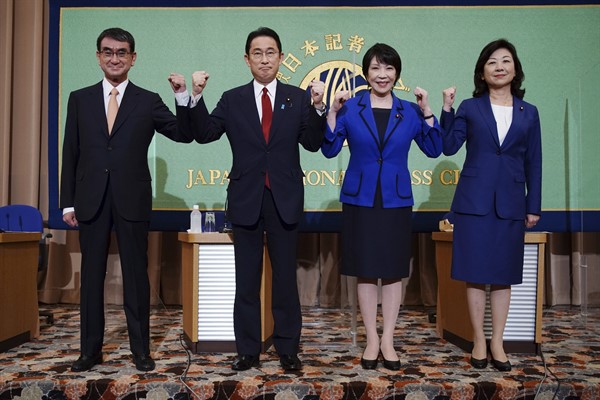Leadership elections in Japan’s long-ruling Liberal Democratic Party are generally predictable, even dull affairs. The head of the LDP is chosen through a nominally democratic process, but the real action traditionally unfolds behind closed doors, with factional bosses picking their favored candidate well in advance of the vote. Once a candidate gains a critical mass of support, the rest of the party tends to fall in line in a kind of bandwagon effect, lest they miss out on any of the political benefits that come with having bet on the winning horse.
In a refreshing change of pace, however, the campaign for the current party leadership contest that will be decided next Wednesday is looking competitive. Even before the highly unpopular incumbent prime minister, Suga Yoshihide, announced earlier this month that he would not seek reelection, two veteran lawmakers had declared their intent to challenge him for the top job in the LDP, and his resignation cleared the way for two more to join the race. Given the party’s control of parliament, whoever ends up winning will also serve as prime minister.
The two front-runners are Kishida Fumio, a former foreign minister who also headed the LDP’s Policy Research Council, and Kono Taro, the current administrative reform minister and COVID-19 vaccine czar. Takaichi Sanae, an ultraconservative who has the backing of former Prime Minister Abe Shinzo, and Noda Seiko, a former minister for gender equality, are both vying to become the country’s first female leader—although Noda, who was late to declare her candidacy, is a long shot.

